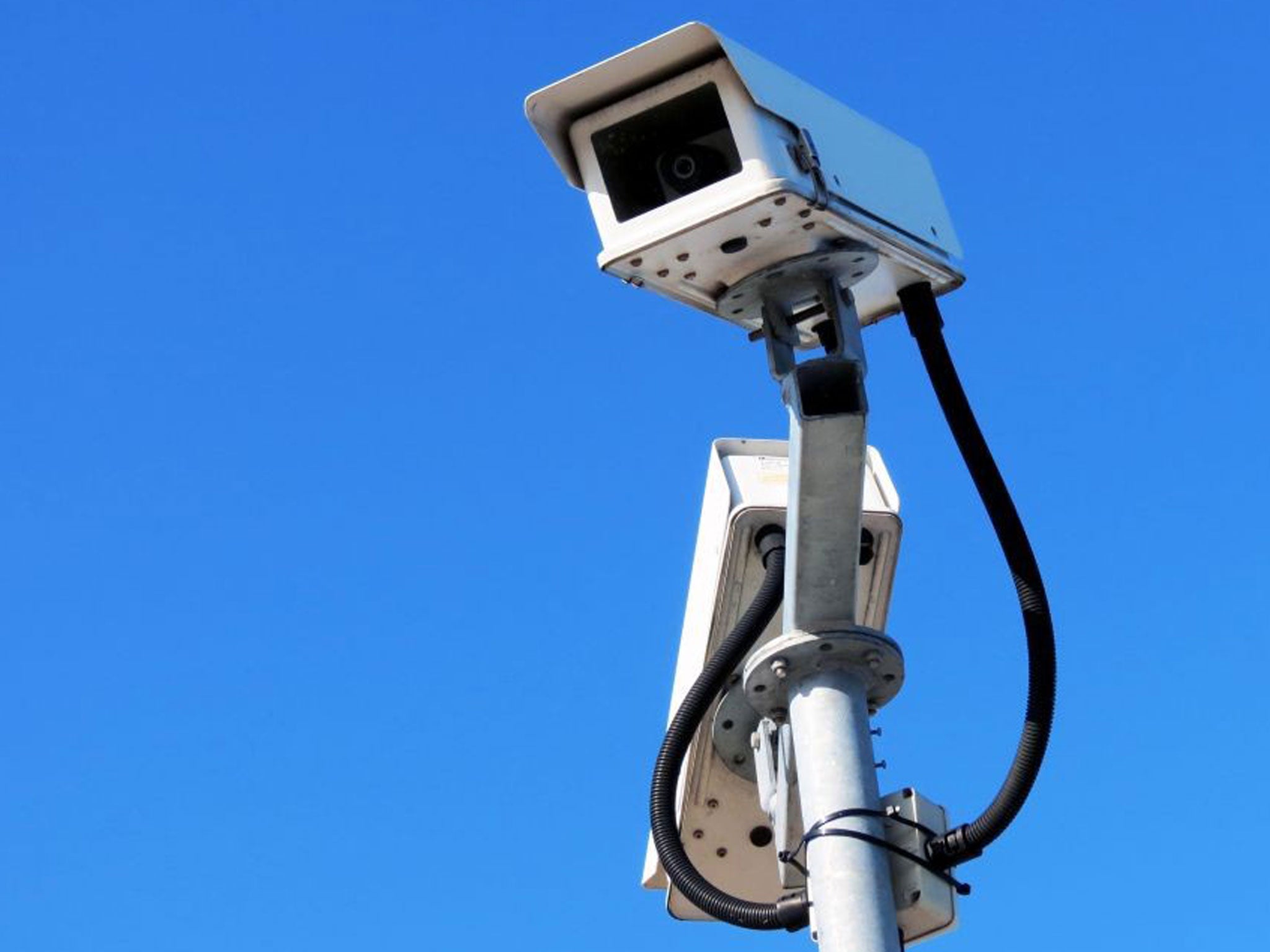Watch out – fewer CCTV cameras about
Budget cuts mean some local councils have had to dispense with much of their CCTV cover... and that's just fine with some people

Your support helps us to tell the story
From reproductive rights to climate change to Big Tech, The Independent is on the ground when the story is developing. Whether it's investigating the financials of Elon Musk's pro-Trump PAC or producing our latest documentary, 'The A Word', which shines a light on the American women fighting for reproductive rights, we know how important it is to parse out the facts from the messaging.
At such a critical moment in US history, we need reporters on the ground. Your donation allows us to keep sending journalists to speak to both sides of the story.
The Independent is trusted by Americans across the entire political spectrum. And unlike many other quality news outlets, we choose not to lock Americans out of our reporting and analysis with paywalls. We believe quality journalism should be available to everyone, paid for by those who can afford it.
Your support makes all the difference.One in five councils has cut the number of CCTV cameras on the streets since the last election, prompting fears over safety and crime, new figures revealed last night. And in one area all public CCTV cameras have been removed as town halls implement cuts.
The figures were obtained in Freedom of Information requests by the Labour MP Gloria de Piero, who last night warned that this, together with a reduction in street lighting by some councils, would undermine public safety.
Some 209 out of a total 326 local authorities in England responded to the request. Of these, 46 councils have reported a reduction since 2010 or have no CCTV cameras at all. The figures relate to "public-facing" CCTV cameras, not those inside private properties such as banks, shops and pubs.
According to the figures, Tory-run Craven District Council in North Yorkshire has cut all of its CCTV cameras since 2010, from seven cameras to zero. In Trafford (also Tory-run) there was a 53 per cent cut, from 245 cameras in 2010 to 115 in 2013. The third-highest cut was 47.7 per cent in Labour-run Blackpool, from 151 cameras to 79. In Labour-run Bolsover, cameras were reduced from 91 to 51, a 44 per cent reduction and Havant (run by the Conservatives) saw a 34.7 per cent cut from 72 to 47.
Ms de Piero, the shadow Home Affairs minister, said: "Cuts which have gone too far and too fast have led to a situation where one in five local authorities has reduced the number of public CCTV cameras they operate since the last general election. CCTV is a vital tool in the fight against crime and the Government is making it harder for communities and authorities to use and place CCTV. Worryingly this also comes at a time when there are 15,000 fewer police officers and when many local authorities across the country have started to turn off street lighting just to save money."
Victim Support, the national charity for victims of crime in the UK, said the loss of CCTV was "worrying". Javed Khan, the chief executive, said: "We know that CCTV helps to improve security in the local community, both by deterring criminals in the first place and by providing evidence that can bring offenders to justice. In this respect CCTV can be a particularly useful tool for dealing with serious crimes such as rape, assault and street robbery. Significant cuts to CCTV, particularly in high crime areas, is therefore worrying. Public safety must remain our top priority to ensure that the number of victims is minimised, regardless of budget constraints."
But the reduction in CCTV coverage was welcomed by civil liberties campaigners. Nick Pickles, director of Big Brother Watch, said: "We welcome the reduction in cameras. The most important thing for us is that crime is falling and the number of CCTV cameras is falling. Yet again the evidence demonstrates there's – at best – a tenuous link and in reality no link between the number of CCTV cameras and crime levels.
"The most important thing is that councils and the police use the most effective methods of keeping the public safe. Countless academic studies – and indeed the Home Office's own research – show little link between public surveillance and crime. I hope these figures will highlight the need to reassess the disproportionately high levels of CCTV use in Britain."
Join our commenting forum
Join thought-provoking conversations, follow other Independent readers and see their replies
Comments